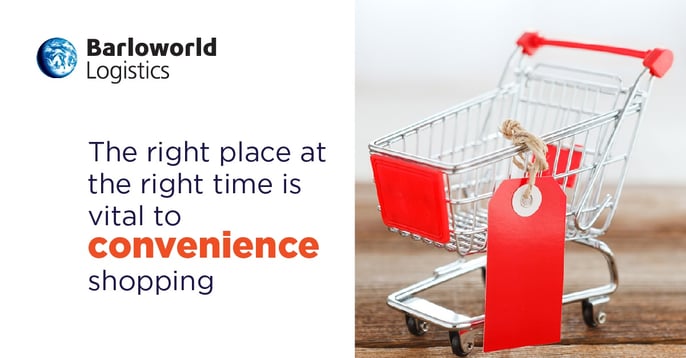
Today, consumers are looking for convenience. They want to shop, work and socialise on the go. Products and services that are not delivered efficiently and seamlessly will be swapped out for those that offer minimal fuss and friction. At Barloworld Logistics, we recognise that forward-looking product vendors and retailers need to be able to position their product or service wherever, and whenever, the consumer requires it. The key is to ensure that retailers and vendors have a strong presence near the consumer’s “on-the-go” stopovers. This presence must also be backed up by customised delivery services. Convenience shopping is demanding that smart supply chains become even smarter.
Establishing a Convenience Value Chain
Right now, the focus within the convenience space is on service and availability. The ability to solve this apparent contradiction lies at the heart of the challenge for logistics players. In our view, this challenge requires a holistic, ‘value chain’ mind set and perspective. By taking into account the macro socio-economic trends, as well as the growing role of technology, logistics players can in fact drive and shape the move towards convenience shopping.

The many opportunities for convenience services have been created by the confluence of several macro socio-economic trends. These include rapid urbanisation, a rising middle class, mobile technology and the internet of things, health and wellness and globalisation. Within this fast-changing context, both locally and abroad, the role of logistics and supply chain players will shift from being an enabler to a core business function. Additionally, the Route-to-Market will be a strategic differentiator, allowing product vendors to penetrate markets and attract new customers. The supply chains will thus allow the suppliers to compete… and the supply chain that is able to differentiate one supplier against another will ultimately grow and thrive.
Deliver to Me
As with most sectors, technology is creating the path ahead. Notably, ‘Deliver to Me’ solutions are emerging, whereby the end consumer is tracked to literally deliver wherever they are. Other key trends include the growing role of smart devices, the proliferation of autonomous vehicles as well as the blockchain and digital currencies. The winners and losers within the convenience shopping segment will be decided upon by their willingness to innovate and to embrace disruption – not work against it.
Read this blog post about how big Data is Defining Future Supply Chains



